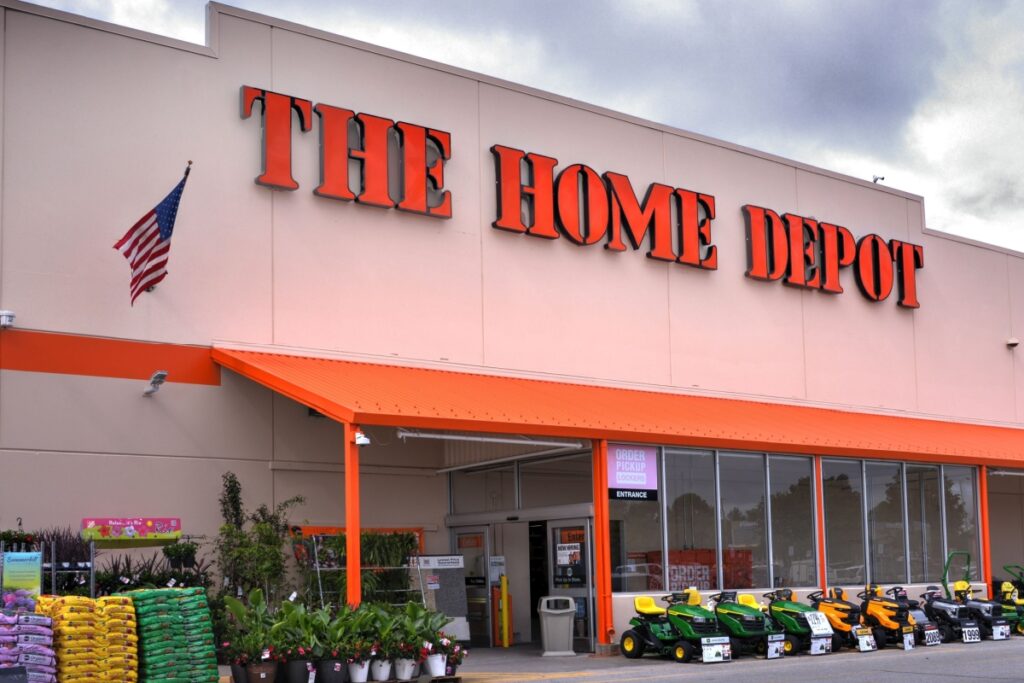In Southern California, Home Depot parking lots—long known as informal gathering points for day laborers—have become the focus of stepped-up immigration enforcement operations. At the Van Nuys branch, which spans about 108,000 square feet, federal agents have carried out raids at least five times since June, according to worker accounts and advocates. In response, laborers have devised makeshift early warning systems, using megaphones, whistles, and handheld radios to alert others of approaching officers.
Alarm Systems Amid Repeated Raids
The operations are part of a broader enforcement push tied to policy frameworks advanced earlier this year by Stephen Miller, the influential former adviser behind many of the Trump administration’s immigration strategies. His efforts to tighten border and workplace controls have continued under the current government’s reshaped enforcement agenda. These sweeps have created heightened anxiety across Los Angeles, where day laborers—many undocumented—seek daily employment outside home improvement stores.
Home Depot has denied any coordination with federal authorities, stressing that it does not call immigration agents to its sites. A company spokesperson said employees are instructed to disengage if they ever perceive conflict or unsafe conditions on store property. Despite these assurances, community activists argue that the company’s silence allows enforcement to unfold at its doorsteps, exposing vulnerable workers.
Fatal Flight and Growing Activism
The consequences of these raids have already proven tragic. In one incident, a laborer lost his life while attempting to escape pursuing agents. Advocates say the case highlights the human toll of aggressive enforcement, where fear of detention drives workers into dangerous situations. For many, the risks underscore the precarious balance between the need to earn a living and the threat of deportation.
Local organizations have increased outreach efforts, providing legal advice, safety training, and direct support to those caught up in enforcement actions. Some groups maintain on-site observers at gathering spots, documenting raids and distributing “know your rights” cards. They stress that while the raids target individuals, they also create a chilling effect across communities, discouraging workers from seeking jobs, medical care, or even reporting crimes.
Despite the dangers, many still return daily. Javier, 52, said he cannot afford to stay home: “I have to feed my family. I’ll be here until I can’t anymore.” For workers like him, the Home Depot parking lots are more than hiring sites; they are places of solidarity, mutual aid, and survival. Their continued presence reflects the resilience of a community that has faced decades of shifting enforcement tactics.
Local Government Pushback and Boycott Calls
The intensification of raids has triggered strong reactions from elected officials. Los Angeles City Councilmember Ysabel Jurado accused Home Depot of being “complicit” in the federal crackdown, citing an incident in Westlake where agents reportedly detained at least 15 people, some using tactical gear and chemical agents. In her view, the company’s failure to intervene or speak out makes it partly responsible for the violence unfolding at its properties.
Jurado also warned of potential consequences for the chain’s expansion plans, specifically a proposed store in Eagle Rock Plaza. She cautioned that bringing such a store into a community with deep immigrant and Filipino roots would effectively import conflict into the neighborhood. In a widely publicized statement, she urged Angelenos to “take your orange aprons somewhere else,” calling for a citywide boycott of the retailer.
Home Depot reiterated its neutral stance, emphasizing that it neither receives prior notification of immigration operations nor cooperates with them. Still, critics insist that neutrality is not enough when the company directly benefits from a customer base that includes contractors and homeowners hiring undocumented day laborers from its parking lots.
Context and Broader Implications
The confrontations at Home Depot sites are part of a larger national landscape of intensified immigration enforcement. In recent months, the U.S. Supreme Court lifted limits on the use of roving patrols, allowing immigration authorities broader discretion in public spaces. Opponents argue that the ruling risks legitimizing stops based on race, language, or occupation, which could disproportionately target Latino communities in California and beyond.
These changes have emboldened federal agencies to take a more visible role in urban centers. In Los Angeles, this has meant highly publicized raids, often carried out with tactical vehicles and agents in body armor. Such displays have sparked protests and clashes, with immigrant-rights groups mobilizing to demand city and state protections. Demonstrations outside Home Depot locations have called attention not only to enforcement tactics but also to corporate responsibility.
The tension highlights a complex intersection of federal power, local governance, worker vulnerability, and business accountability. While federal officials defend the sweeps as lawful efforts to uphold immigration rules, critics view them as disruptive, dangerous, and discriminatory. For day laborers, the stakes remain immediate and personal: a day’s work might mean survival, but each morning in the parking lot also carries the risk of detention or worse.


